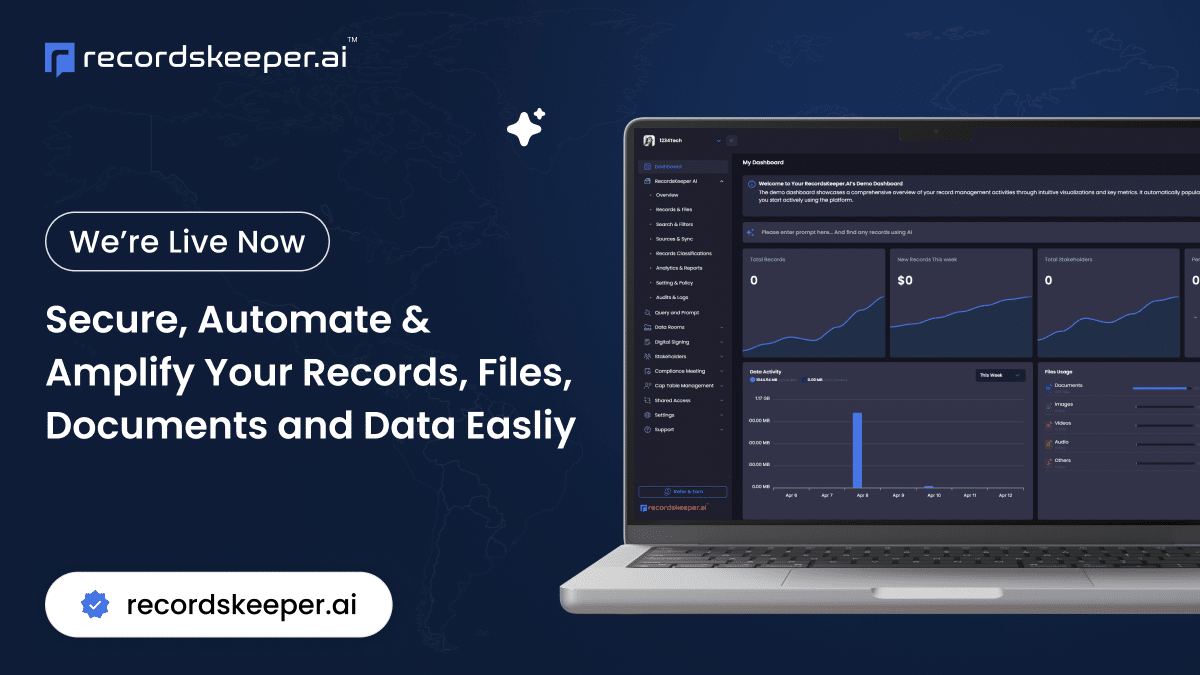Introduction
In today’s digital age, the healthcare industry is undergoing a transformation unparalleled in its history. At the center of this revolution is the advent of AI-powered technologies, which are reshaping traditional practices to enhance efficiency, security, and accuracy in medical record-keeping. Google, a titan in the tech world, has ventured into electronic health records (EHR) with groundbreaking innovations. As someone who has dedicated a significant portion of my career to developing AI and blockchain solutions for records management, I find Google’s developments in AI-powered EHR systems particularly intriguing.
Embracing the AI Revolution in Healthcare
The integration of AI into healthcare IT systems heralds a new era wherein EHRs are not just static repositories of patient data but dynamic platforms that predict, guide, and enhance patient care. What Google is bringing to the table is a system that leverages advanced AI algorithms to streamline data management and provide insightful analytics that can drive precision in diagnosis and streamline workflows for healthcare providers globally.
The promise of AI-powered EHR is immense. Imagine a world where administrative burdens are minimized, allowing practitioners to truly focus on the patient rather than paperwork. AI helps achieve this by automating routine tasks—such as data entry and retrieval—and enhancing the accuracy of captured data to minimize errors associated with manual entries.
Google’s Electronic Health Record System: Key Innovations
Google’s journey into the realm of EHR has uncovered several innovations that have caught the attention of industry professionals worldwide. Here are some of the standout features:
- Natural Language Processing (NLP): Facilitating seamless interaction with EHRs through voice or text commands, NLP enables efficient data entry and retrieval. Practitioners can harness these capabilities to swiftly update records or obtain information instantaneously.
- Predictive Analytics: By analyzing patterns in patient data, Google’s EHR system can predict potential health risks and suggest preventive measures. This empowerment leads to proactive patient management rather than reactive treatment strategies.
- Data Security and Compliance: Security and compliance are paramount in healthcare IT. Google’s EHR ensures that sensitive medical records are protected while adhering to regulations such as HIPAA, thus building trust with healthcare providers and their patients.
- Interoperability: A major hurdle in current EHR systems is the fragmentation of data across various platforms. Google aims to solve this by creating interoperable systems that facilitate the seamless exchange of critical patient information, ultimately enhancing collaboration among healthcare providers.
Challenges Facing AI-Powered EHR Systems
While Google’s advancements bring hope and promise, it would be remiss not to address the challenges inherent in the adoption of AI in EHR systems. These challenges aren’t unique to Google; they represent industry-wide hurdles that need collective attention:
- Data Privacy Concerns: The integration of AI necessitates access to vast amounts of sensitive patient information, raising legitimate concerns about privacy. It is imperative to develop robust privacy frameworks that secure data without hampering functionality.
- Implementation Costs: Transitioning to a new AI-powered system can be cost-prohibitive for some healthcare providers. Upfront costs, linked with training and maintaining these sophisticated tools, may be seen as barriers to widespread adoption.
- Resistance to Change: Both healthcare providers and patients may be resistant to altering their established routines. Comprehensive education and transparent communication about the benefits and safety of AI-enhanced EHRs are essential to counteract this resistance.
Ensuring a Smoother Path with AI in Healthcare
As a firm advocate of AI and blockchain in records management, I understand the transformative potential it holds. The key is to strike a delicate balance—leveraging cutting-edge technology while safeguarding the human aspects of healthcare delivery. Professionals tasked with record keeping in the legal, finance, and compliance departments should view AI-powered EHRs not as mere tools but as strategic allies that augment their capabilities, ensuring compliance, and bolstering efficiency.
When considering the integration of AI-powered solutions such as Google’s EHR system, it is crucial to adopt a holistic approach that encompasses technological, regulatory, and human factors. Working together, the healthcare community can overcome the challenges to unlock the full potential of these systems, thereby fulfilling their imperative promise of enhancing patient care.
Conclusion
As healthcare continues its digital transformation journey, Google’s electronic health record system represents a bold leap into the future. With AI-driven innovations, these systems are set to redefine the landscape of healthcare IT, turning challenges into opportunities for improved patient outcomes and operational efficiencies. I have no doubt that the world of EHR will continue to evolve, driven by the synergies of AI and human ingenuity. As we look forward, I encourage all stakeholders in the healthcare industry to embrace these changes and explore the possibilities that AI-powered solutions offer. Stay tuned for more insights, and let’s connect for a deeper dive into the innovations reshaping the world of record management.








